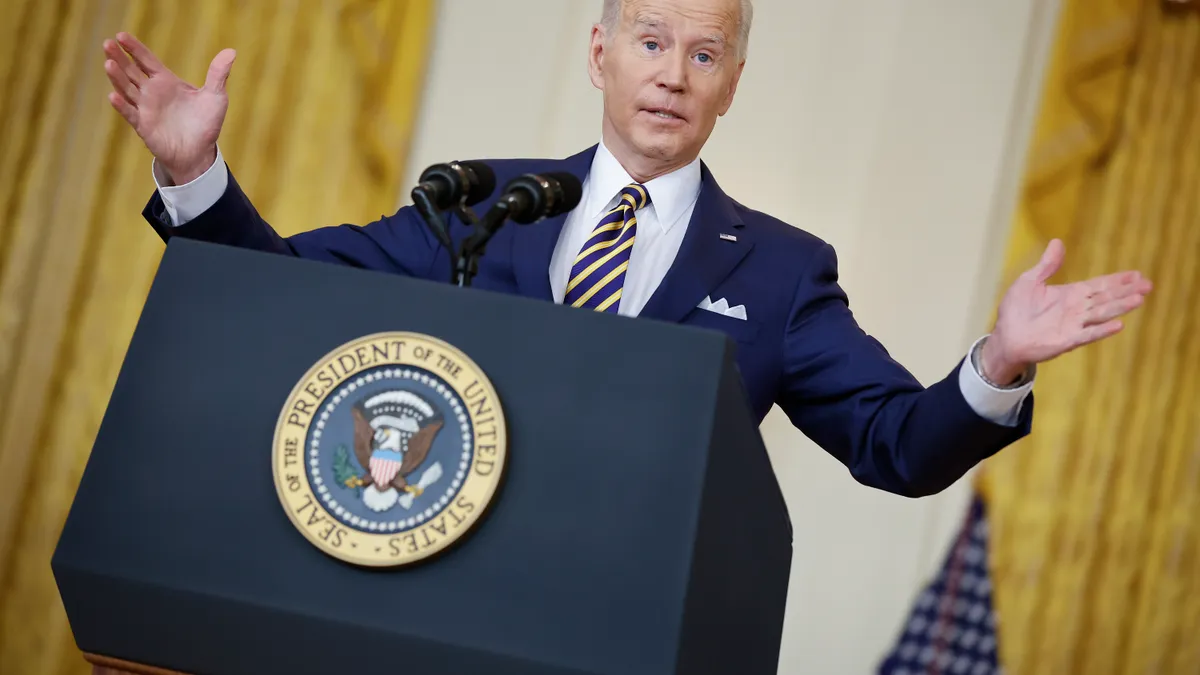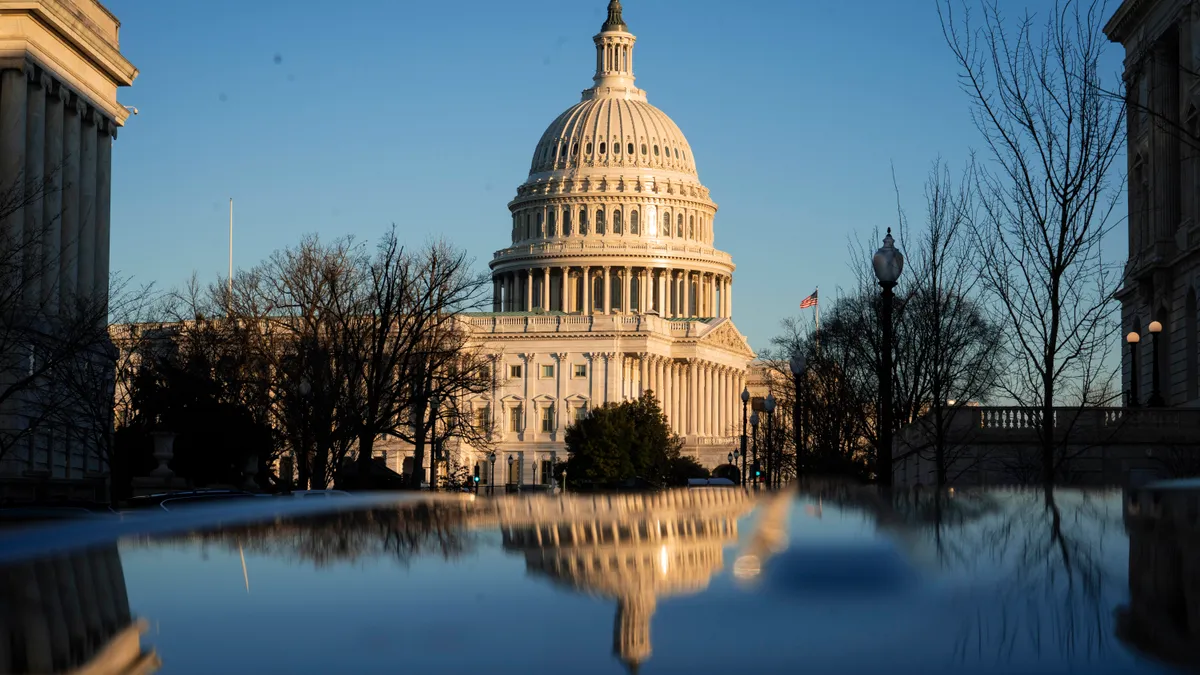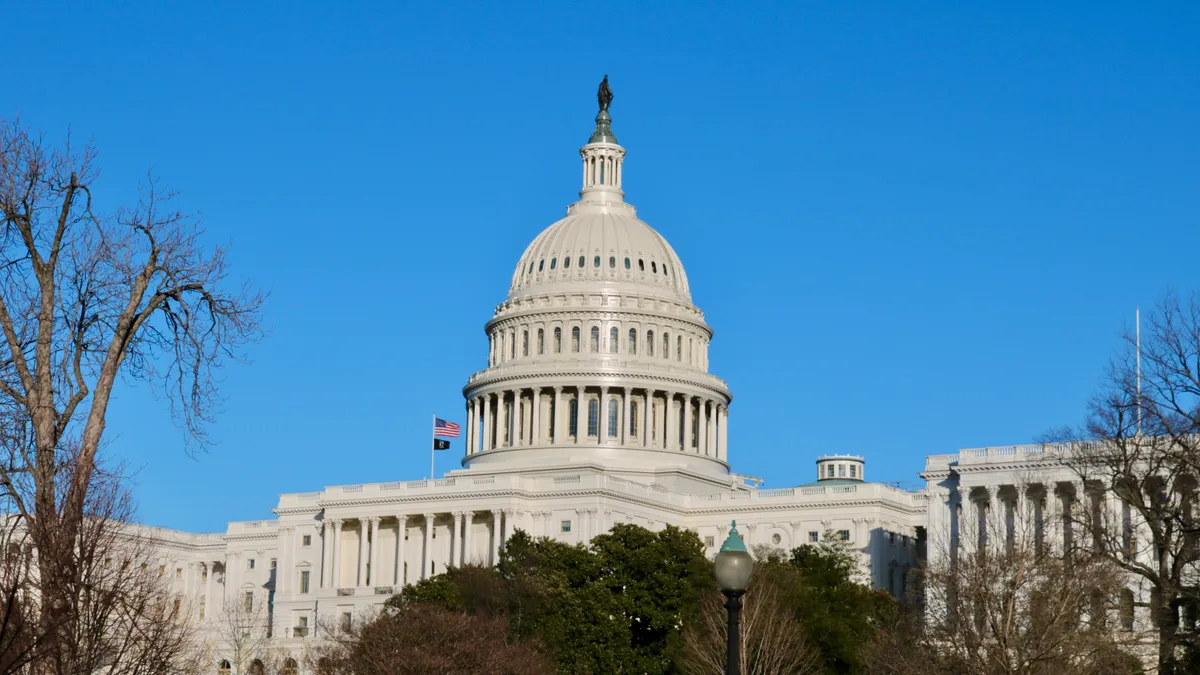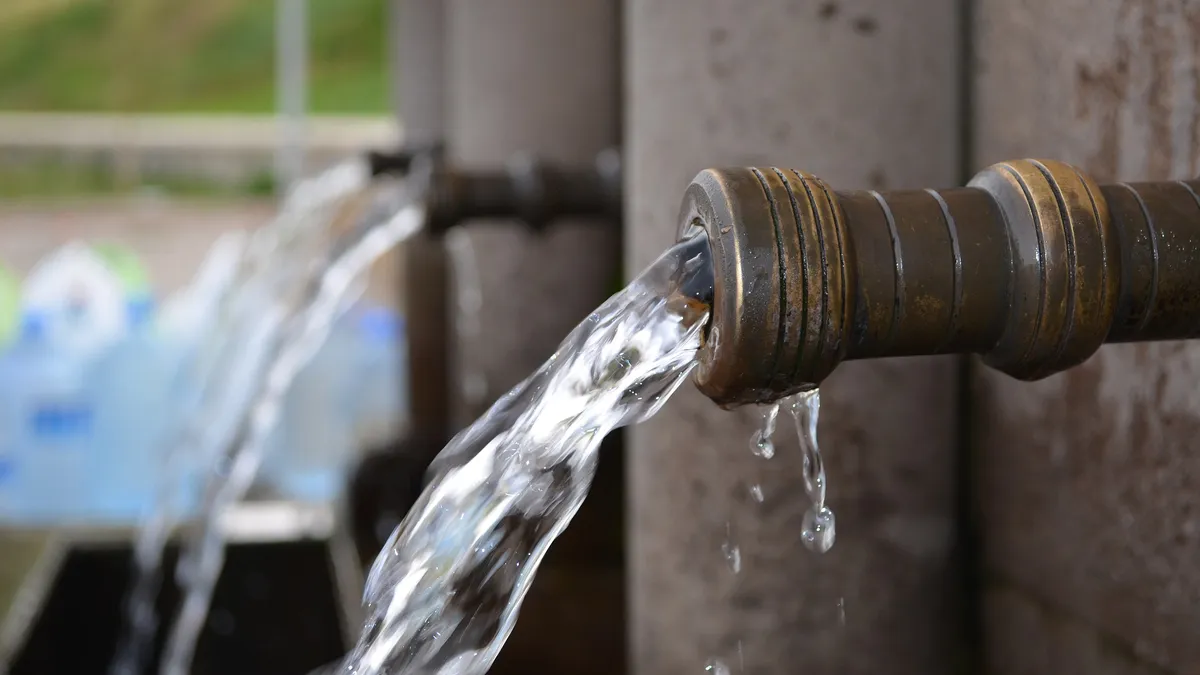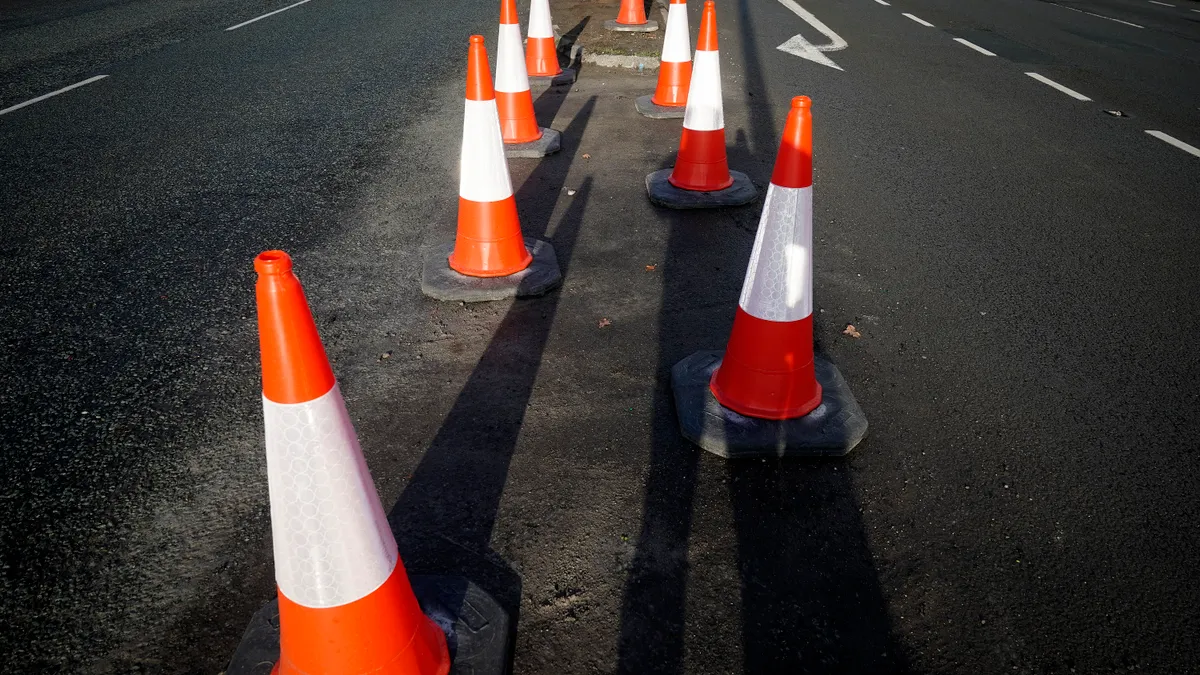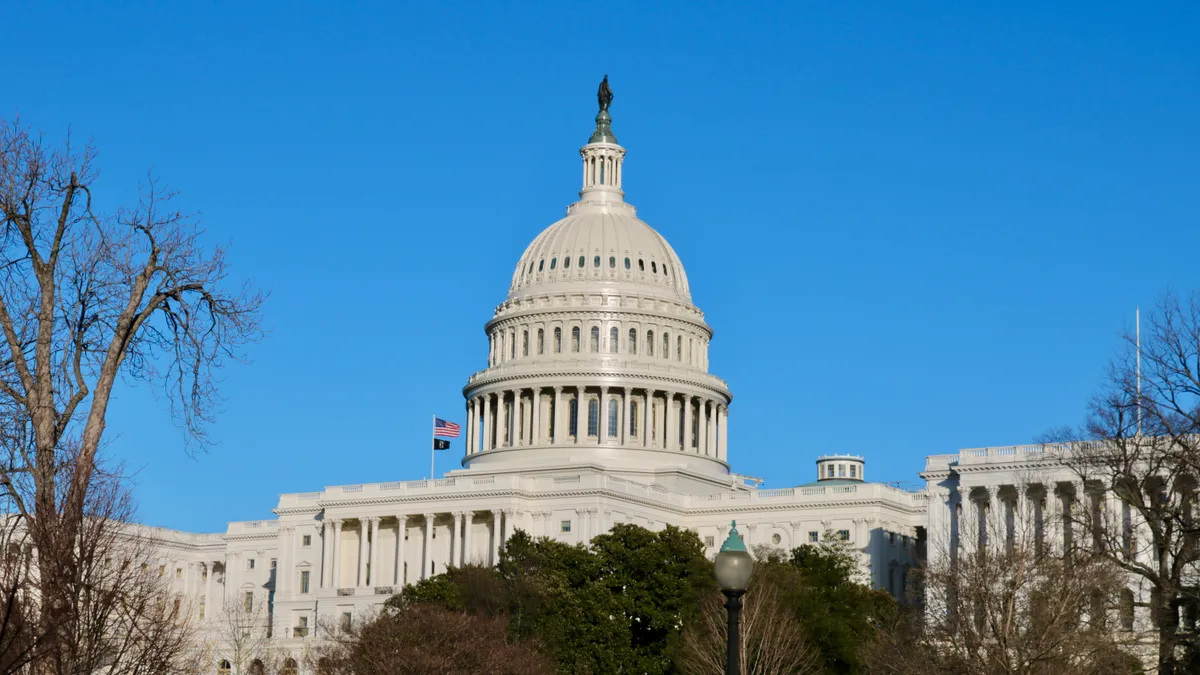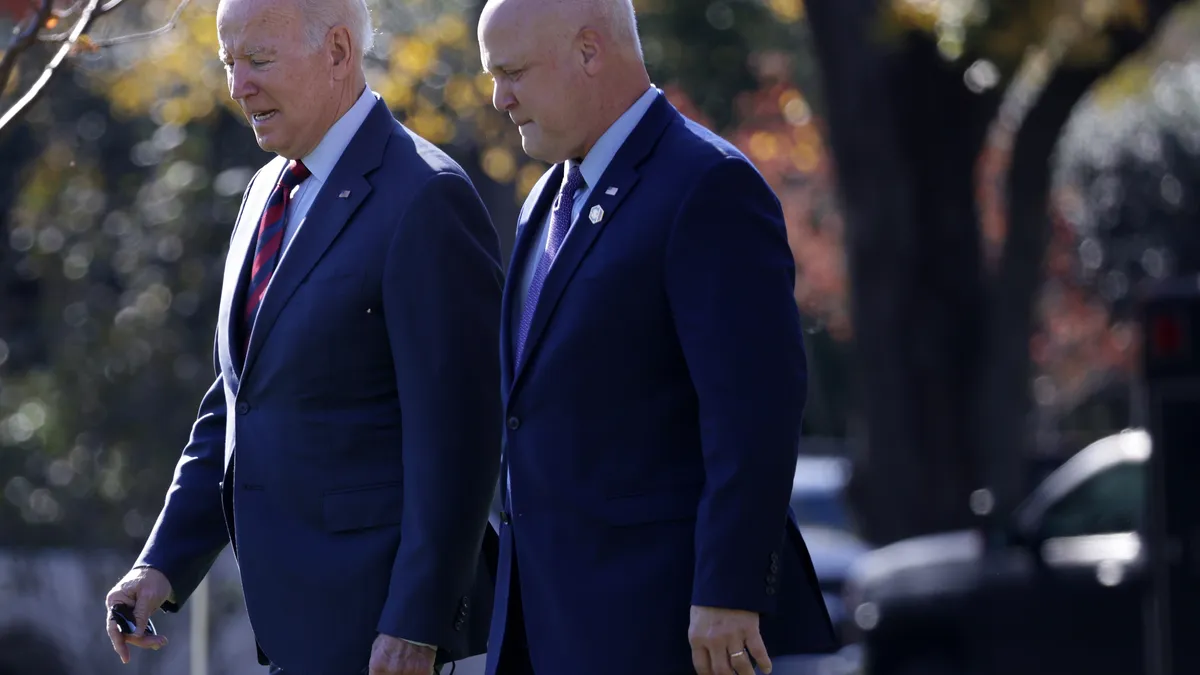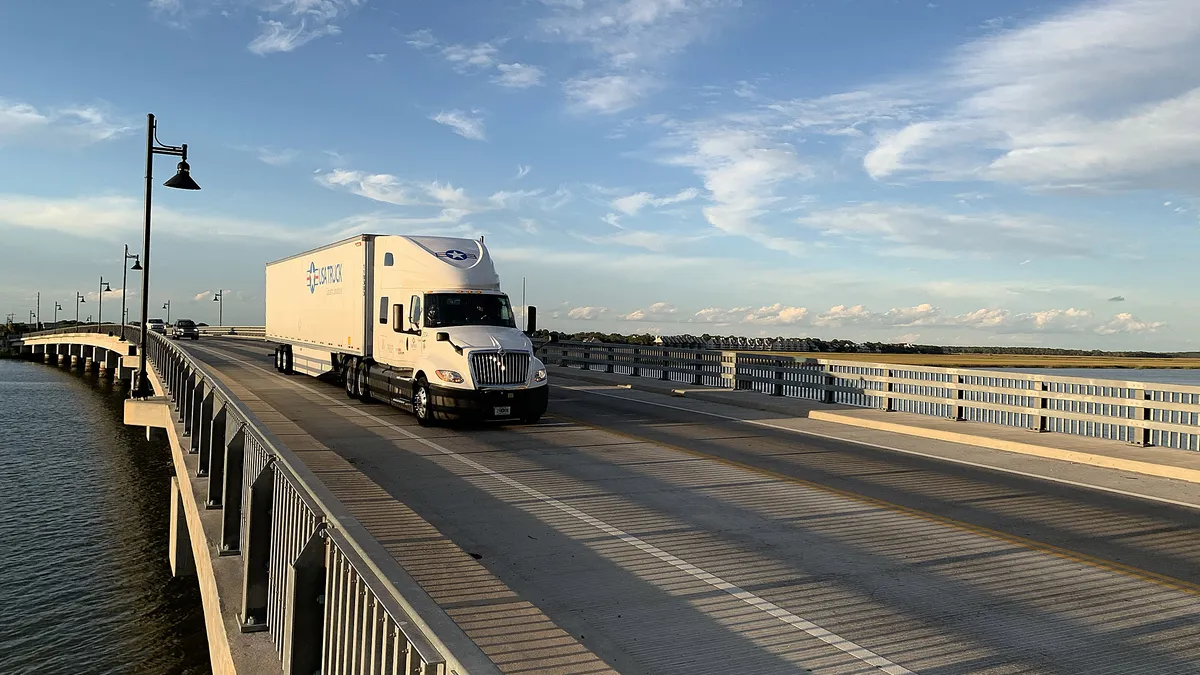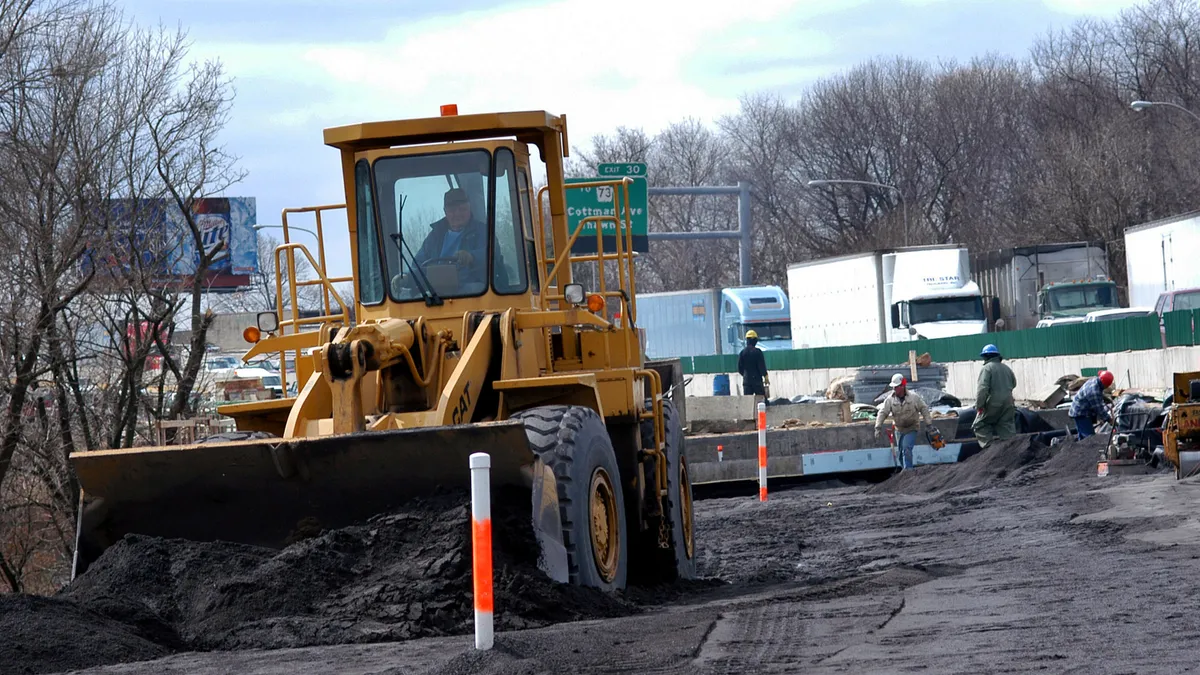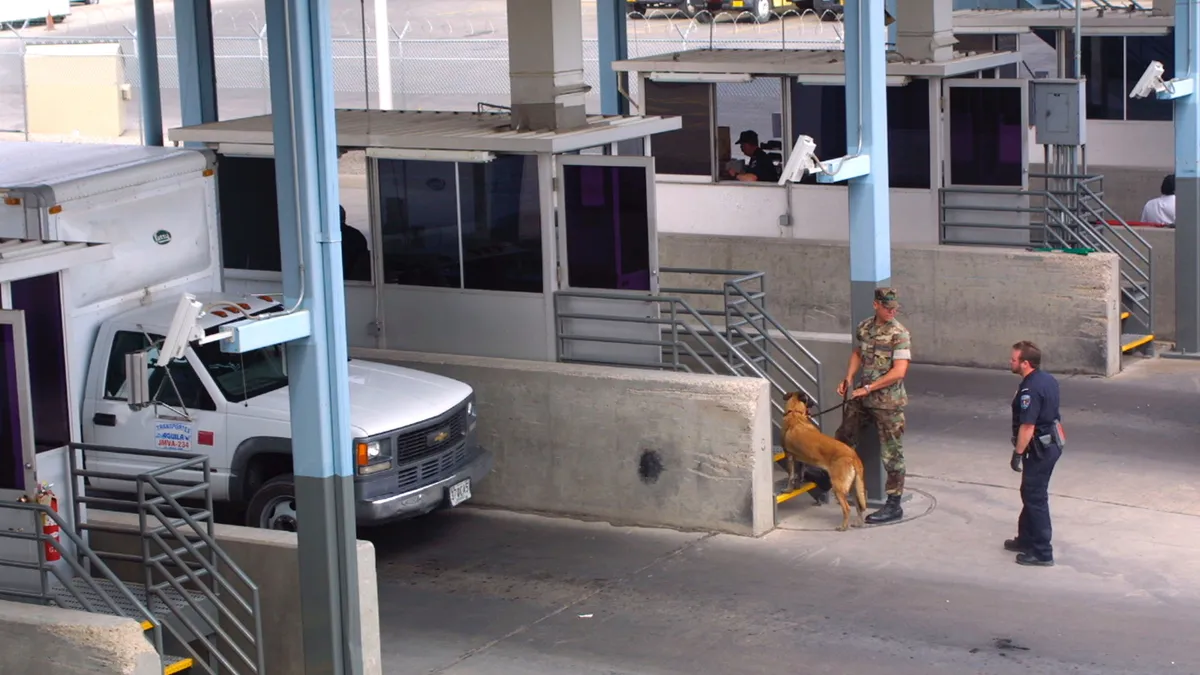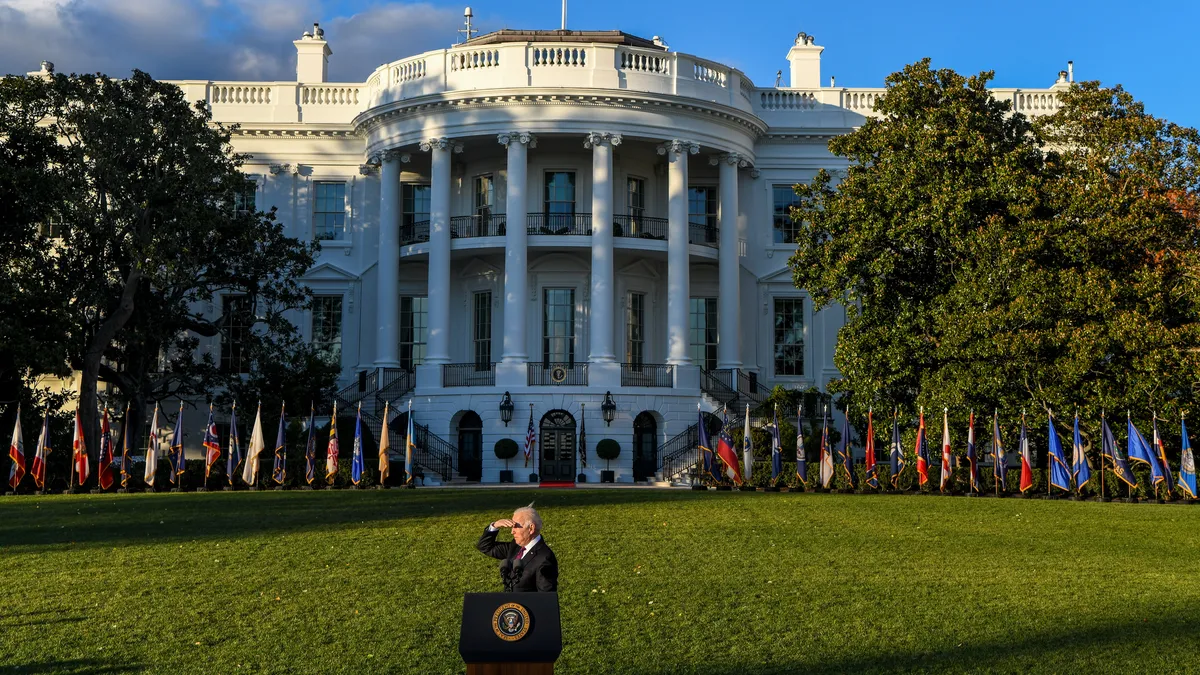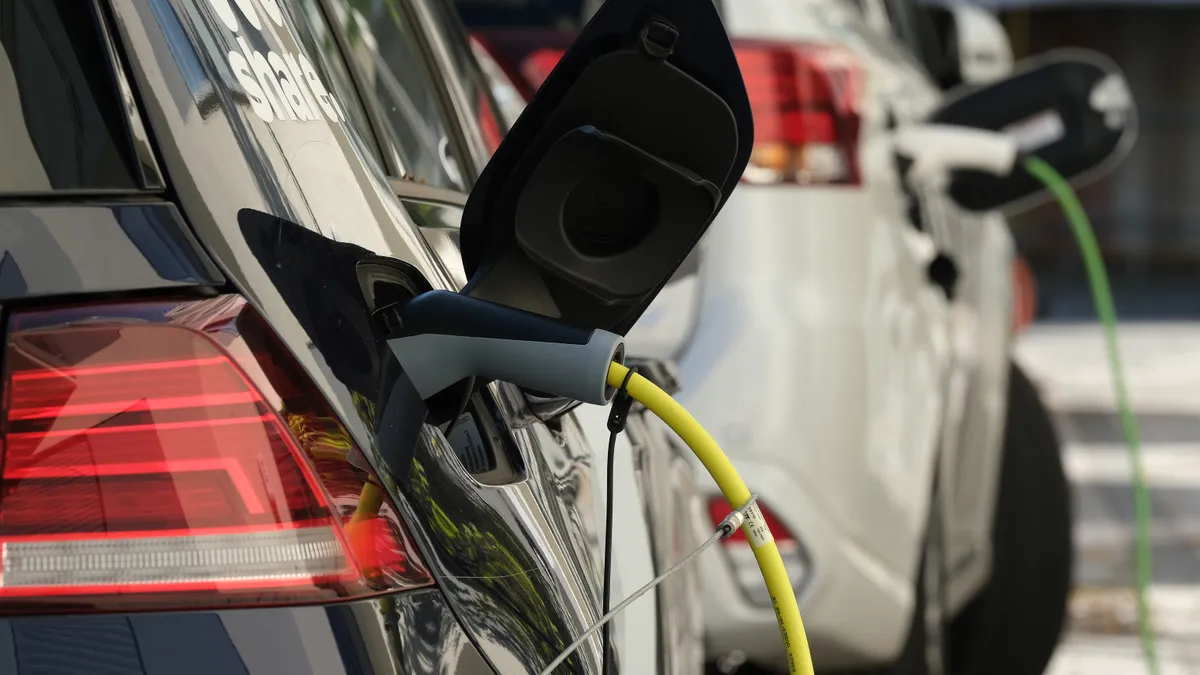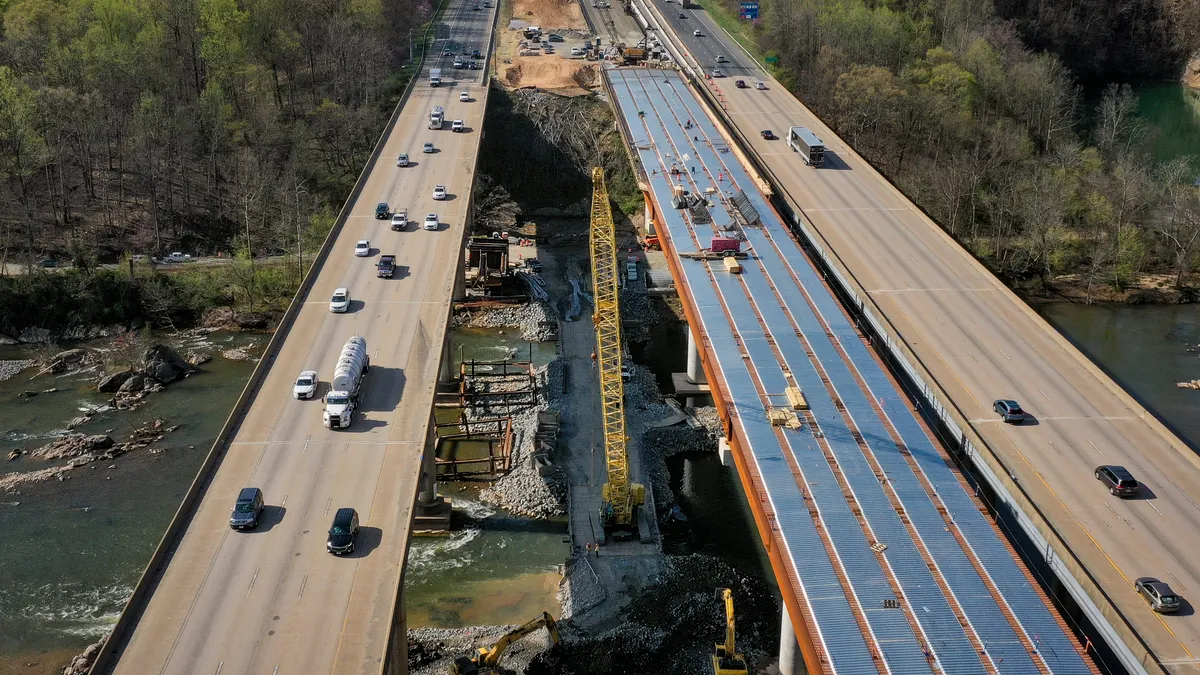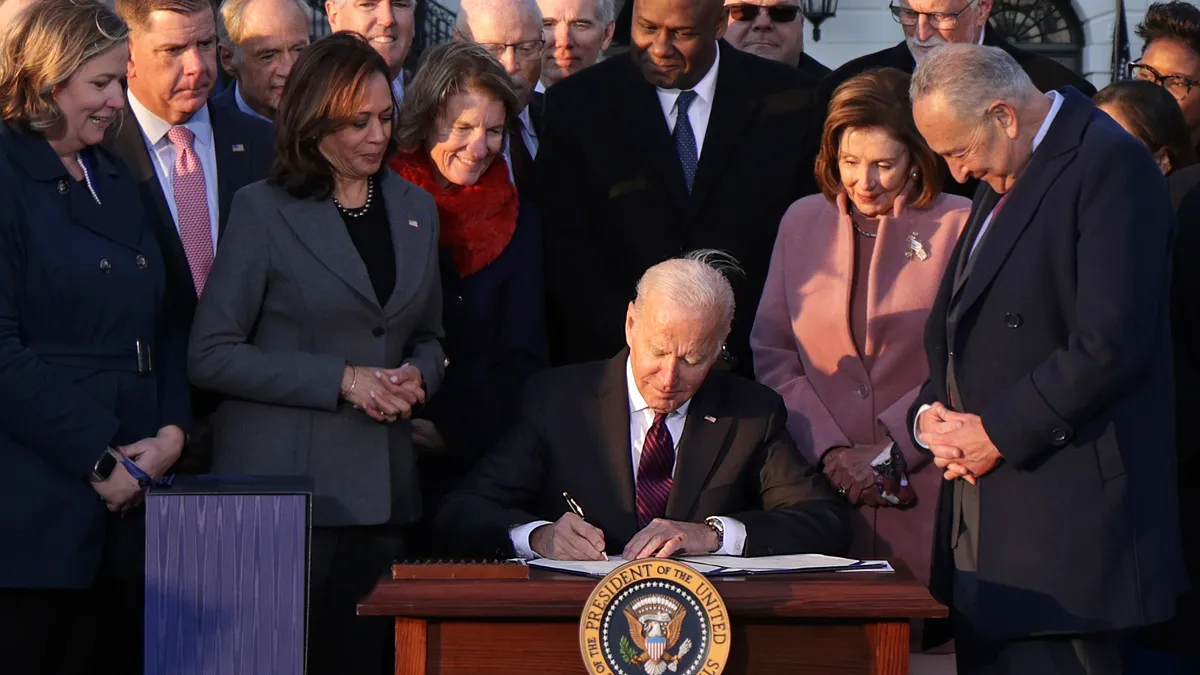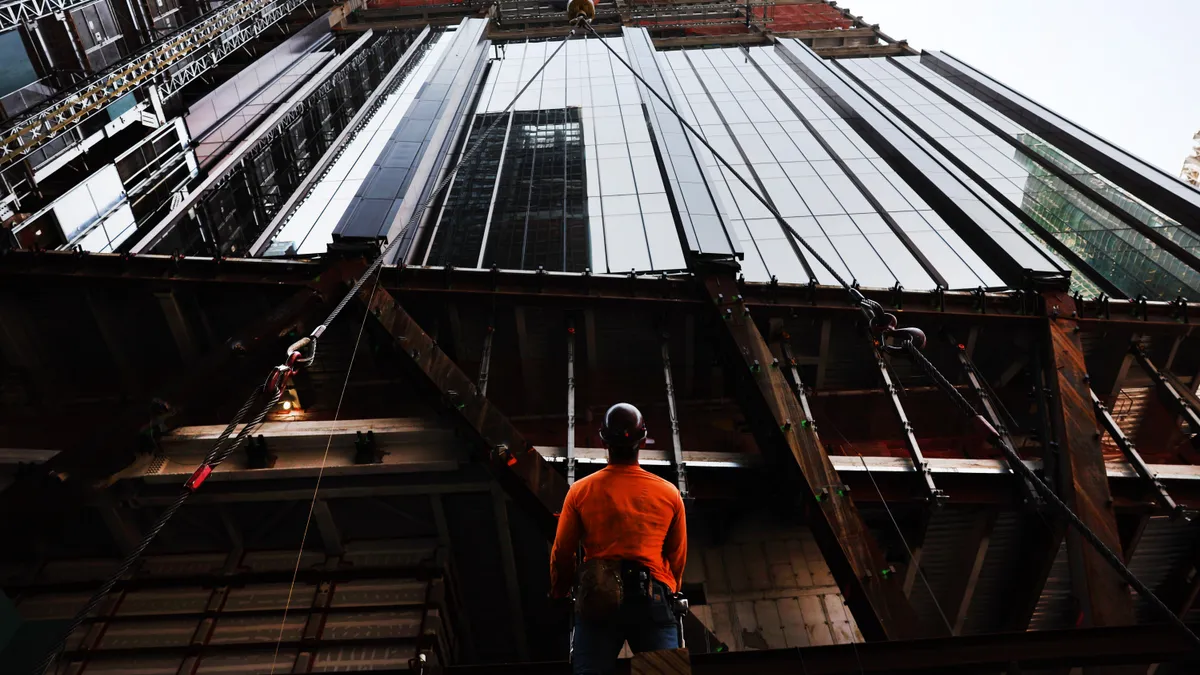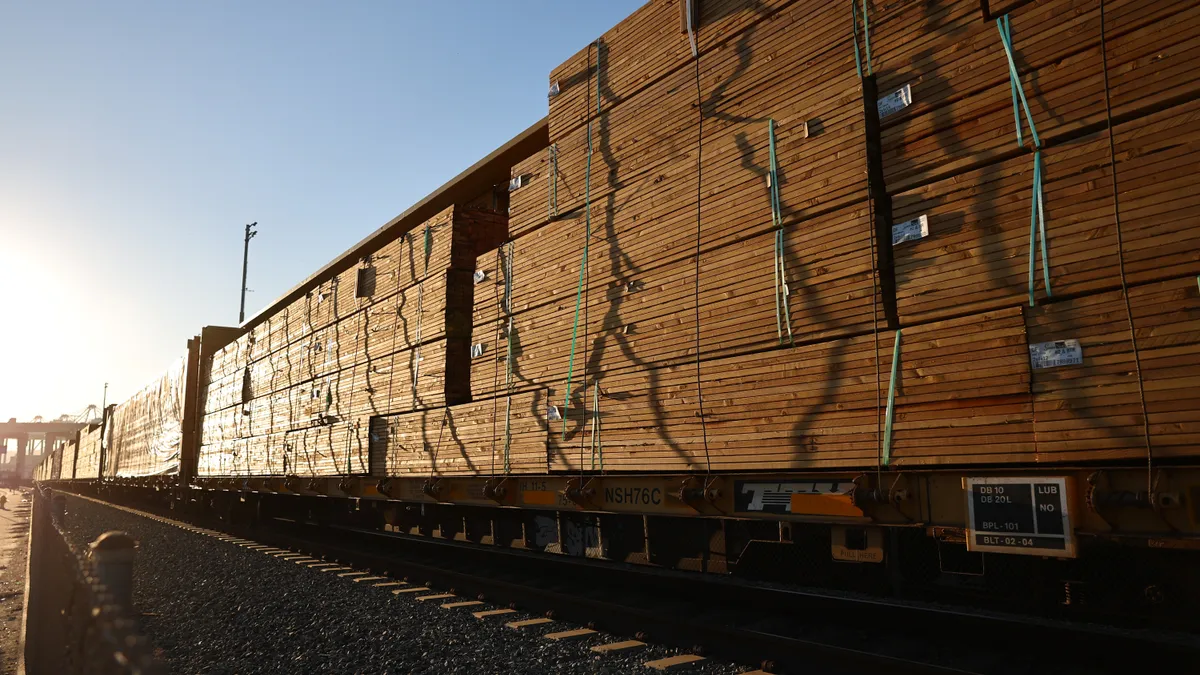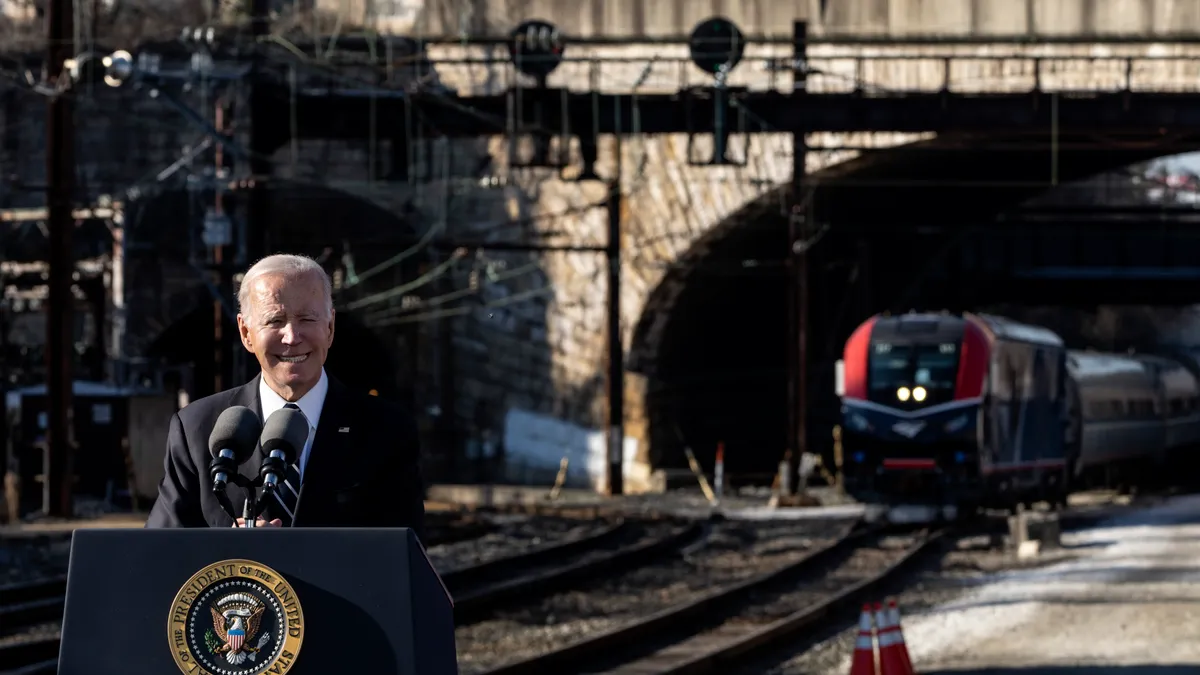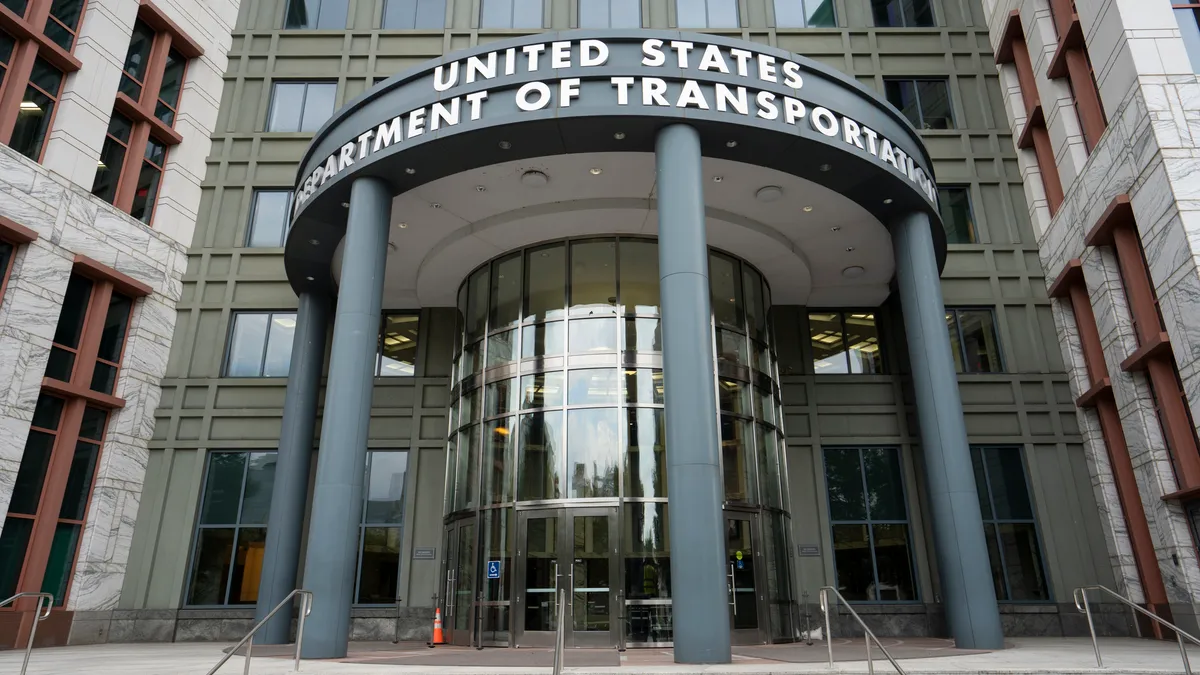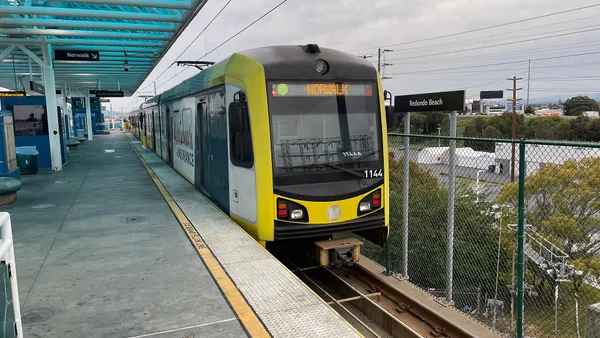Dive Brief:
- The Biden administration released guidance for state and local governments on Jan. 31 to help them identify funding in the recently passed Infrastructure Investment and Jobs Act (IIJA).
- The document breaks down available money by 12 issue areas such as transportation and resilience, and includes a data file that enables users to navigate IIJA programs by agency, recipient, program name and more. The White House expects to update it in coming weeks with deadlines and other details.
- The guidance also contains resources to help jurisdictions prepare to receive the money, such as links to partner programs and fact sheets.
Dive Insight:
The federal government will distribute the $1.2 trillion in IIJA funds through new and existing programs. So far, more than $80 billion has been allocated to states for roads and highways, bridges, ports, airports and water systems, according to the release. Additional programs are being rolled out for high-speed internet, electric vehicle chargers and energy grid upgrades.
However, a community's lack of capacity to apply for federal funds can create and amplify inequities, the White House acknowledged in a press release about the new guidance. The document is one effort to help address this gap, and the White House Infrastructure Implementation Team will also be reaching out to jurisdictions, federal agencies and philanthropies to offer technical assistance.
"Our primary goal is to empower people across the country with information, so they know what to apply for, who to contact, and how to get ready to rebuild," said Mitch Landrieu, senior advisor and infrastructure implementation coordinator, in the release.
At the moment, the Biden administration is facing another hurdle to advancing its infrastructure goals: Congress has not yet approved a new budget that would fund IIJA projects. Instead, it passed a continuing resolution in December that maintains funding from the previous year in order to keep the government running.
That means new infrastructure programs cannot be launched, and some states have pressed pause on planning for them, according to the Washington Post. Democrats are hoping to pass a new funding bill by Feb. 18.



